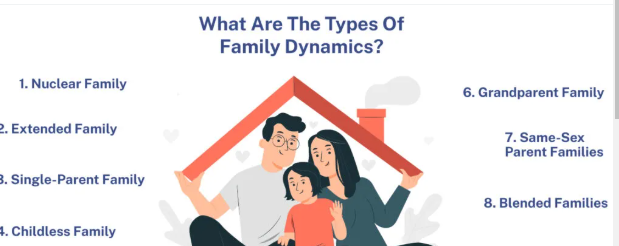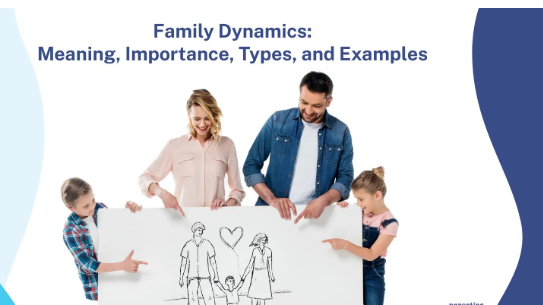Should Ex Wife Be Invited to Family Functions? Navigating Complicated Family Dynamics

The question of whether to invite an ex-wife to family functions presents a unique challenge, often fraught with emotional complexities and varying perspectives among family members. It is imperative to consider the ramifications on current relationships and the potential effects on children, who may find themselves navigating divided loyalties. Engaging in open dialogue about these dynamics can foster understanding, yet establishing boundaries remains equally critical. As we explore the various facets of this dilemma, one must ponder how to create an environment that respects the past while embracing the present. What considerations should guide these decisions?
Understanding Family Dynamics
Understanding family dynamics involves unpacking the intricate relationships and interactions that shape the behavior and emotional well-being of family members.
In blended families, differing family roles can create both challenges and opportunities for connection.
Recognizing these roles fosters an environment where individuals feel valued, promoting healthy communication and emotional resilience.
Ultimately, this allows families to navigate complexities with greater empathy and understanding.
The Impact on Children
The emotional well-being of children is profoundly influenced by the complexities of their family dynamics.
When stability is compromised, children may face challenges that affect their development and sense of security.
Understanding these impacts is crucial for fostering healthier environments that support both their emotional needs and family cohesion.
Read More Husband John Brady Melissa Peterman Age Difference: Understanding Their Relationship
Emotional Well-being of Children
Children are often the most vulnerable members of a family, and their emotional well-being can be significantly impacted by complex family dynamics.
When navigating such situations, ensuring child support and promoting emotional resilience are essential. Parents and guardians should prioritize open communication, fostering a safe environment where children can express their feelings, ultimately helping them to adapt and thrive amid familial changes.
Maintaining Family Stability
Complex family dynamics can create an environment of uncertainty that significantly impacts children’s sense of stability.
To foster a nurturing atmosphere, consider the following:
- Establish consistent family rituals
- Encourage open communication about feelings
- Promote relationship harmony among adults
- Prioritize children’s emotional needs
Assessing Current Relationships
Assessing current relationships within a family requires a careful evaluation of emotional connections and underlying dynamics.
It is essential to understand how these relationships impact each member, particularly in regard to prioritizing children’s well-being.

Evaluating Emotional Connections
Understanding the emotional connections within family dynamics is essential for fostering healthier relationships. Evaluating these connections allows individuals to recognize the evolution of relationships and emotional attachment.
Consider these aspects:
- Current feelings towards the ex-partner
- The impact on children and other family members
- Historical context of the relationship
- Willingness to maintain connections for harmony
This reflection can guide decisions about family functions.
Understanding Family Dynamics
Navigating family relationships requires a nuanced approach that acknowledges the unique dynamics at play. Understanding how family roles influence relationship dynamics can facilitate healthier interactions. Assessing current relationships involves recognizing varying perspectives and emotional histories.
| Family Role | Relationship Dynamics |
|---|---|
| Parent | Authority vs. Support |
| Sibling | Rivalry vs. Companionship |
| Ex-Spouse | Co-parenting vs. Estrangement |
| Grandparent | Wisdom vs. Overreach |
| Extended Family | Connection vs. Obligation |
Prioritizing Children’s Well-being
Recognizing the intricate interplay of family relationships is vital, particularly when it comes to prioritizing children’s well-being.
Effective co-parenting strategies should consider:
- Children’s perspectives on family gatherings
- The emotional impact of relationships on children
- Open communication between parents
- Stability and consistency in children’s lives
Communicating With Family Members
Effective communication with family members serves as the cornerstone for fostering healthy relationships and resolving conflicts.
Engaging in open and honest family discussions allows everyone to express their feelings and opinions freely. This approach not only nurtures understanding but also encourages empathy among family members, helping to navigate complex emotions.
Prioritizing effective communication can bridge gaps and strengthen familial bonds amidst challenging dynamics.
Setting Boundaries
Establishing boundaries is essential for maintaining healthy family relationships and ensuring individual well-being.
Effective boundary setting facilitates personal space, allowing family members to express their needs openly.
Consider the following guidelines:
- Identify your emotional triggers
- Communicate your boundaries clearly
- Respect others’ boundaries
- Reassess boundaries as dynamics change
Considering Special Occasions
Special occasions often serve as both a celebration of familial bonds and a potential source of conflict, particularly in families with complex dynamics.
Read More Husband Mary Duff Age: Exploring the Age Difference Between Mary Duff and Her Husband
In blended families, holiday gatherings can evoke mixed emotions and varying expectations. Open communication about the inclusion of an ex-spouse can foster understanding and respect, ensuring that everyone feels valued while navigating the delicate balance of tradition and new beginnings.

Emotional Implications
Amid the complexities of family gatherings, the emotional implications can be profound, often revealing underlying tensions and unresolved feelings.
- Emotional triggers may surface unexpectedly.
- Past grievances can resurface, affecting interactions.
- The presence of an ex may evoke mixed emotions.
- Navigating these dynamics requires sensitivity and awareness.
Understanding these factors fosters an environment that honors everyone’s feelings while promoting healthier relationships.
Strategies for Inviting
Creating a welcoming environment for family gatherings requires thoughtful strategies when it comes to invitations. Adhering to invitation etiquette while honoring family traditions can help ease tensions. Consider the following approaches to facilitate inclusive invitations that respect everyone’s feelings.
| Strategy | Description |
|---|---|
| Open Communication | Discuss with family members beforehand |
| Neutral Language | Use inclusive wording in invitations |
| Shared Decision-Making | Involve family in the invitation process |
Finding Common Ground
Inviting family members to gatherings can often highlight underlying tensions, making it imperative to seek common ground among diverse perspectives.
Fostering an environment of mutual respect can facilitate positive interactions.
Consider the following strategies:
- Identify common interests
- Encourage open communication
- Set clear boundaries
- Focus on shared family values
Conclusion
Navigating the invitation of an ex-wife to family functions resembles steering a ship through turbulent waters; careful navigation is essential to maintain harmony. By fostering open communication, understanding current relationships, and considering the emotional well-being of all involved, families can create an environment where respect and empathy prevail. Ultimately, balancing tradition with evolving dynamics requires sensitivity, ensuring each member feels valued and included, which enables the family to weather the complexities of their shared history.



